
Camping in Paradise
I’d like to preface my report by saying that this trip was possible thanks to Dr. Eric and Dr. Carol Meyers, whose generous scholarship allows graduate students, like myself, to visit Cyprus and not only gain experience excavating but also form new, valuable connections. Thank you!
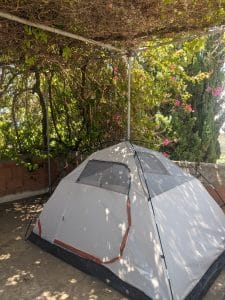
Tent on the roof of the old Peltenburg Archaeological Centre in Lemba
This report briefly describes my time in the 2022 field school led by Dr. Lindy Crewe at Kissonerga-Skalia (KS), a Bronze Age site in the Paphos region of Cyprus, dating from at least the Philia Phase (~2400 BCE) to the early Late Cypriot period (~1600 BCE). My experience in the field school was overwhelmingly positive and truly one of a kind. It complimented my previous field school experience in 2019 at Kalavasos-Ayios Dhimitrios, which sparked my love of Cypriot archaeology and the Bronze Age. I was admittedly anxious at first about my participation at Skalia due to some sudden and unexpected accommodation changes for the field school participants.
The new accommodations involved camping out in a tent on the roof of the old Peltenburg Archaeological Centre in Lemba for the month. However, after about one week in Lemba, I had adapted to my (very humid) surroundings and realized that the house in Lemba afforded us more independence and the opportunity to become better acquainted with Paul Croft, who resides at and cares for the Lemba centre. The house was beautiful and a place where generations of archaeologists have worked and stayed, making me feel like I had participated in some kind of tradition or initiation into the world of Cypriot archaeology. Moreover, the village of Lemba is an old, picturesque place in the hills overlooking the Mediterranean Sea and boasting thousands of years of human occupation (i.e., not a bad place to call home).
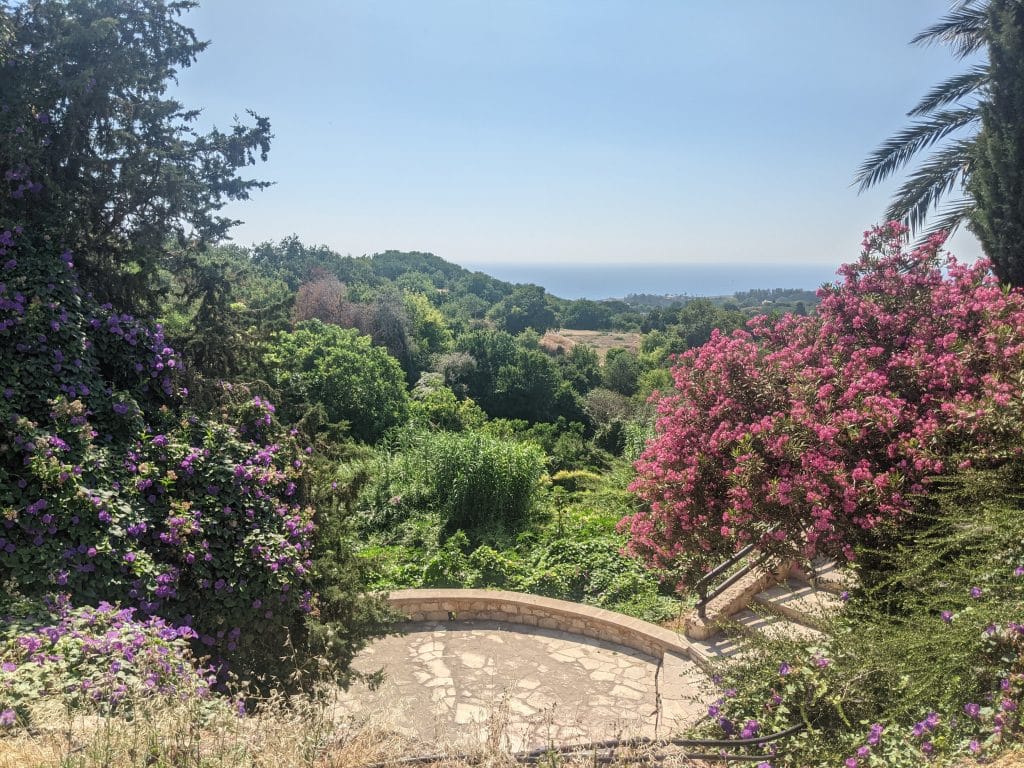
I was also grateful for the experience of excavating with Crewe and her team at Skalia. Crewe has assembled an eclectic group of supportive and intelligent archaeologists from all kinds of different backgrounds. Some of the supervisors and participants work in academia, others in commercial archaeology and some of them earn a living in entirely different fields. Regardless of their backgrounds, their expertise and experience at the site was invaluable and I greatly appreciated the diversity of their career paths, which can be rare in academic circles.
My own research and responsibilities at the site focused on the faunal remains at Skalia, an experience which I found to be both challenging and rewarding. My own familiarity with animal (and human) anatomy was unpractised, so I benefitted intensely from Croft’s sample collection of bones, which he allowed me to handle whenever necessary. Recognizing gaps in my anatomical knowledge, I did my best to support my team by cleaning and recording the bones, rather than making futile attempts to identify them myself. When errors were made in our records, I took initiative to stay behind and correct the mistake, a process which took two and a half days of work.
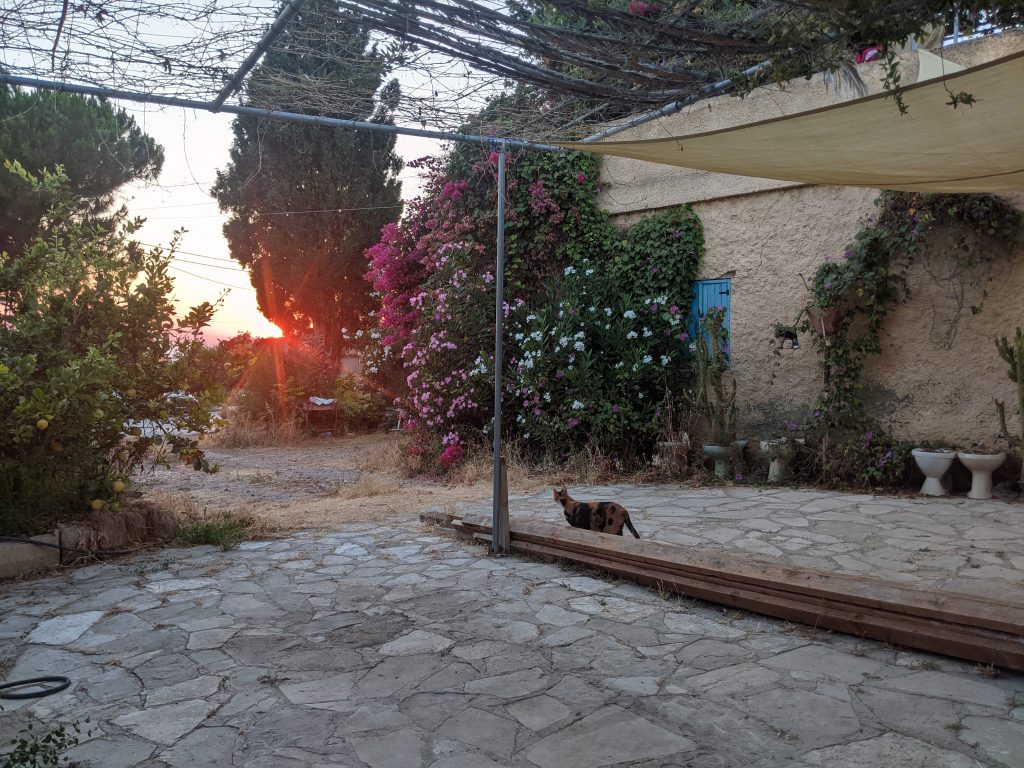
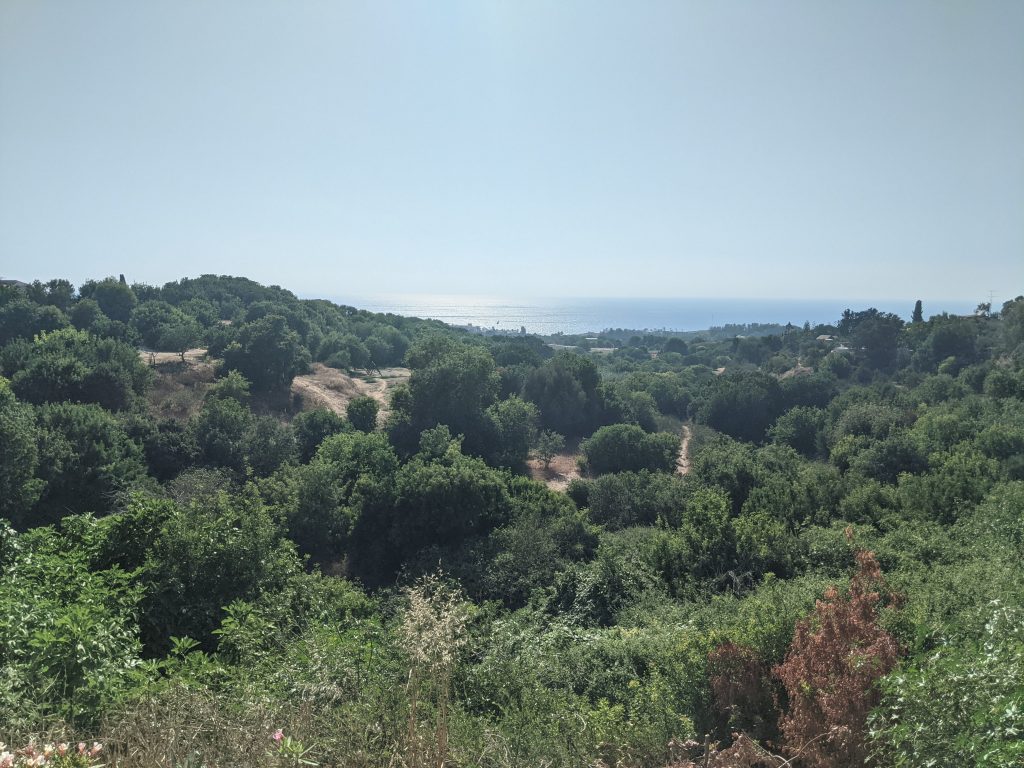
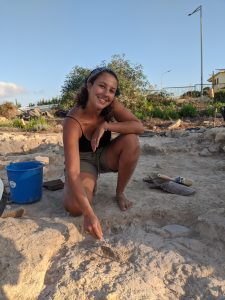
Safia excavating in the field
My honest pride and joy for the season was my work on the floor of Area P/B. I genuinely love field work and I was overjoyed to have found the floor, as I recognize its significance in understanding the basic layout and stratigraphic occupation of a space. Thanks to my cautious work, Muti assigned me responsibility over the floor for about two weeks. A number of my peers came and joined me but none seemed to enjoy it as much as I did. It seems trivial to take such pride in excavating a floor but I remembered how challenging it was to find at Kalavasos-Ayios Dhimitrios and the experience of being able to differentiate tamped earth from mud plaster floor provided me with a skill that I had not anticipated I’d acquire this season. I also felt supported and recognized for my efforts, as the team awarded me the “golden trowel”, one of the many superlative awards given at the end of the field season.
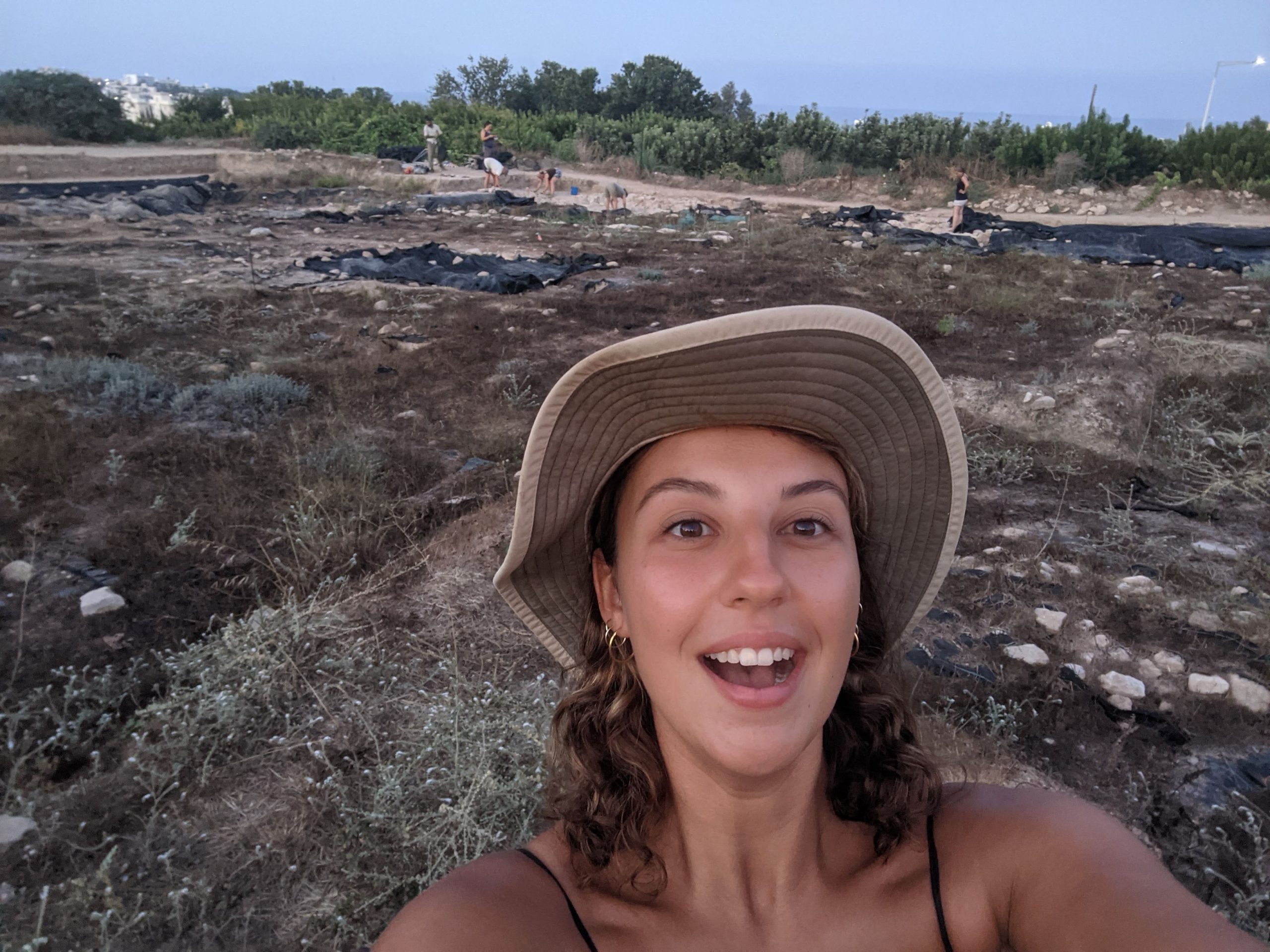
I would relish the opportunity to return to Kissonerga-Skalia and I am grateful for the experience of meeting and excavating with such an incredible team of professional archaeologists, who taught me not only how to excavate but also showed me that there is more than one path to becoming an archaeologist and that, when in doubt, it is possible to pave your own.
Safia Boutaleb (she/her) is a graduate student completing her Masters of Classical Archaeology at The University of British Columbia in Vancouver, Canada. Her thesis focuses on women’s economic participation in Cyprus during the Late Bronze Age and the many ways their activities in daily life remain overlooked in scholarship of ancient economy. Kissonerga-Skalia 2022 was her second field school in Cyprus she has hopes to return to the island each year to research and participate in field work.
American Society of Overseas Research
The James F. Strange Center
209 Commerce Street
Alexandria, VA 22314
E-mail: info@asor.org
© 2023 ASOR
All rights reserved.
Images licensed under a Creative Commons Attribution-NonCommercial-ShareAlike 4.0 International License
COVID-19 Update: Please consider making payments or gifts on our secure Online Portal. Please e-mail info@asor.org if you have questions or need help.
